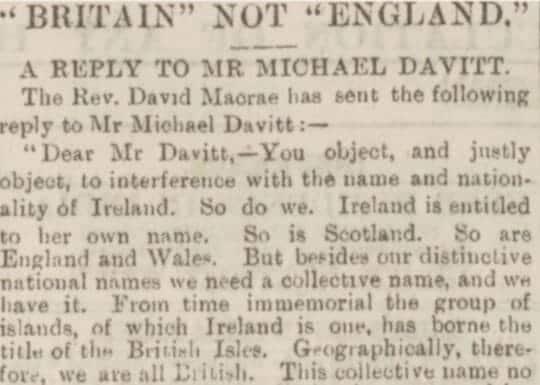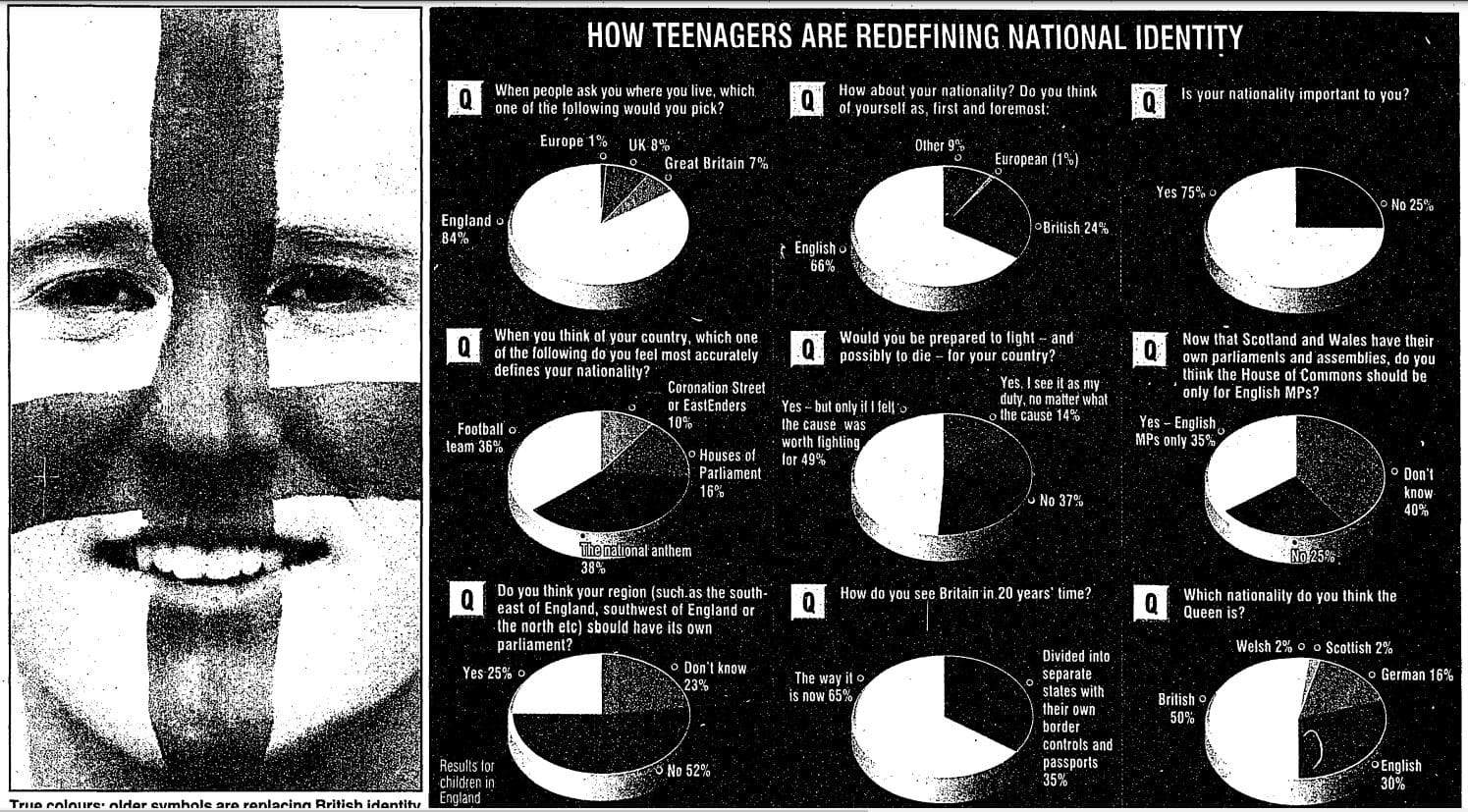│By Jess Briony Hodgson, Gale Ambassador at the University of Sheffield│
Britain has always had a complex identity historically speaking – from Alfred the Great and the nature of medieval kingdoms, through to the fallout from Brexit, the way in which Britons conceptualise their nation and nationality has always been changing – and this makes primary source work all the more interesting.
When using primary sources such as those found in Gale’s digital archives, one main challenge is removing our own understandings of ‘the nation’ from the equation, so we can properly analyse the information and make accurate interpretations and comparisons. One space in which we can see a microcosm of all these changes is print media, particularly newspapers, which will have (for the most part) aimed to capture readers’ opinions and concerns, highlighting the changes in concepts such as the nation.
Insular vs. Wider Conceptions of the Nation
The ways in which the British perceive their own national identity is a fascinating and deeply nuanced topic, and one that is constantly changing. For instance, this article from The Sunday Times in 2000 demonstrates how young people felt about Britain, but also has strong implications for the feelings of other groups. The apparent surprise and concern of the writer, who talks about the “fears… of a devolved United Kingdom”, suggests that even between a few generations, a strong change in national identity was occurring. Referring to a “foresaken Britannia”, this writer at least had his own clear concept of ‘the nation’ which he upheld.

The focus on changing identity from British to English/Welsh/Scottish emphasises how changeable concepts of the nation are, with different groups meaning different things by the same term. This information can impact how we interact with other sources of the era – for instance, it would be important to bear in mind when looking at census records and other surveys that people sharing the same legal nationality might be identifying themselves in a variety of ways; in this case, British versus English/Welsh/Scottish or Northern Irish.
The article extends its reach; touching on European identity as another form of self-identification and implying that the nation’s relationship with Europe as a continent was under discussion – though at the time, very few of the children polled felt tied primarily to Europe, rather than Britain or their own country. Insular ideas of the nation as opposed to wider-reaching concepts are arguably one constant in ideas of the British nation.
Changing Definitions of ‘British’
The possibility that the definition of ‘British’ was changing and shrinking can be seen especially clearly in the 1970s and 1980s, at the beginning of an era where individual rights, rather than collective ones, were being championed by political figures such as Margaret Thatcher. This might have had an impact on the ways in which British people viewed their nation (or lack thereof). Another way politics in this era altered concepts of the nation was by changing the legal definition of nationality.

In newspaper collections such as The Sunday Times Historical Archive, as shown here, we can see the ways legal and political definitions changed, and infer how this might have impacted the definitions used in other historical sources. The suggestion that the Commonwealth would cease to fall under British nationality tells us again that there has been a stark difference in the concept of the British nation even within thirty years. When working with these two newspaper sources it would be anachronistic to assume that the writers (and the readers) were all considering the nation in the same way at both times.
Britain not England

Keeping this in mind, we can look back at older documents with a more critical lens and draw comparisons more effectively. One fascinating similarity I have found is between the twenty-first century article and a letter published in the Dundee Telegraph in 1897, entitled ‘“Britain” not “England”‘. Here, a Scottish reader expresses his frustration at being referred to as part of England rather than Britain. “Beyond our distinctive national names we need a collective name, and we have it,” he says.
The idea that outside of each country there was some sense of national belonging is in juxtaposition to the Sunday Times article, however it expresses similar concepts such as the tense debate between individual and group national identity throughout the years. The fact that there was controversy over referring to different countries as ‘Britain’ or ‘England’ as a collective term reminds us how our definitions of a nation are constantly changing and go back and forth between eras. So, whilst the parallels are fascinating, we cannot project modern definitions onto sources from other times.
The Impact of Colonialism

It is also vital that we remember the impact colonialism has had on the concept of ‘the nation’ – as Britain invaded other nations, it often labelled them as its own, and the question of who was a British national – and the power this held – changed with it. In this way, labels of ‘nation’ and ‘nationality’ might have been weaponised by those in power to maintain a hierarchy in colonial spaces.
In The Making of the Modern World, many monographs and manuscripts exemplify this, such as the one shown above, which depicts a debate over colonists’ position in parliament. Even when referring to British expatriates, as this monograph does, we see debate over levels of ‘belonging’, and clearly these would be all the more complex and harmful for those who had been colonised.
This source calls into question who is defined as an ‘Englishman’, as well as how they might be represented, and highlights important changes to the concept of nationality in the last three hundred years. This reminds us of more subtle concepts of the ‘nation’ – defining the legal/governmental rights of colonised people to be represented in the government that has control over them. Again, such sources remind us why we must examine concepts of the nation with a critical lens and be sure to avoid transmitting both our own biases, but also those of the writers, when researching topics like nationality.

This concept is, overall, a fascinating one, with much room for exploration. The ways in which linguistics and meanings change over time provides a lot of contexts, but also a lot of traps that we as historians must be careful not to fall into.
If you enjoyed reading about concepts of ‘the nation’ and national identity, check out these posts:
- History Lecturer uses Gale Primary Sources to Research Spanish National Pride
- Nationalism vs. the True Meaning of National Independence Day in Poland
- 100 Years Since Finland Declared Independence: A Look Back at the Creation of a Nation
Blog post cover image citation: Grimston, Jack. “Young Britons lose sense of nation.” Sunday Times, 19 Mar. 2000, p. 8. The Sunday Times Historical Archive. https://link.gale.com/apps/doc/FP1803365650/GDCS?u=su_uk&sid=bookmark-GDCS&xid=c82fd65d


